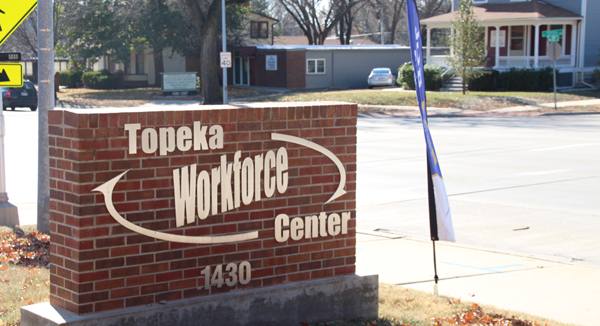In life, once in a while, people fall into a position and discover that it was everything they ever wanted to do with their life. That has certainly been the case with Keli Warrior and her position at the Topeka Workforce Center.
Six months ago, Warrior became a Native American Disabled Veteran Outreach Program Representative (DVOP). This means that Warrior spends her days reaching out to Native American Veterans in Kansas, building relationships with them, and directing them to helpful programs offered by the state.
According to Warrior, there are several issues facing Native Veterans in Kansas today.
“It can be very challenging,” Warrior said. “Historical trauma, not having a voice, being isolated.”
She has found it easy to relate to the experiences of the Native Veteran community, especially since she is, herself, both a Native American and a member of the Armed Forces.
Warrior is a member of the Ponca nation and a Specialist in the Army National Guard, part of the 137th Transportation Unit based in Topeka. She has been in the Military for six years, having enlisted seven days after graduating from high school.
“Honestly, I needed a backup plan. My grades weren’t the best,” she said. “I didn’t know if school was the right thing for me, so I chose the military. Thankfully, both of them worked out.”
Throughout her own experiences, Warrior has seen racial biases play into the struggles of her community, as well.
“There’s a stigma to being a Native American,” she said. “We get the perception that we’re ‘the drunk Indian.’ Unfortunately, I have come across that.”
Even with these obstacles, Warrior has found success in a rewarding career path, and dedicates her time to helping Native Veterans in Kansas to do the same.
Warrior helps point Native Veterans in the direction of state programs, including the Federal Bonding program. This program provides individual fidelity bonds to employers for job applicants who are/may be denied coverage because of arrest record, history of alcohol or drug abuse, lack of employment history, or dishonorable discharge
In addition, Warrior often points Native Veterans to programs hosted by the Topeka Workforce Center, including resume building workshops. According to Warrior, the courses on building resumes for federal jobs are especially important to her community because most jobs on Native American reservations are federal, due to reservations being federal land.
“A lot of the veterans I work with tend to be older, their resumes tend to be a little old-school,” she said. “So, this program can help with that.”
In terms of the work Warrior is doing, she says there are reasons for Kansas Native Veterans to be optimistic. According to her, one of the best parts of doing this job is the people she gets to interact with.
“They’re great, they’re motivated,” she said. “I really love my job.”
For more information on programs for Disabled Native Veterans in Kansas, Keli Warrior can be reached at Keli.Warrior@ks.gov.
- KDC

 Metro Voice News Celebrating Faith, Family & Community
Metro Voice News Celebrating Faith, Family & Community 








